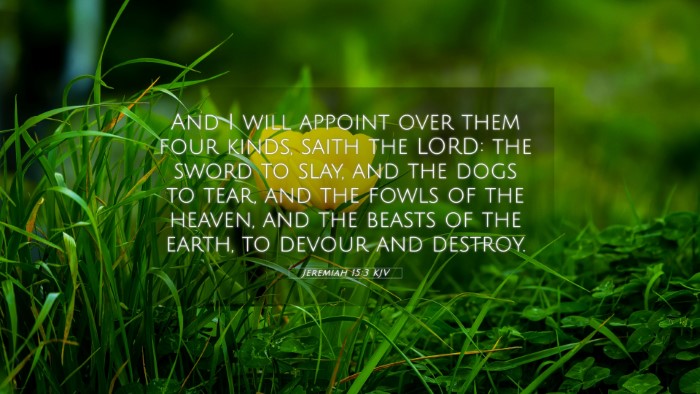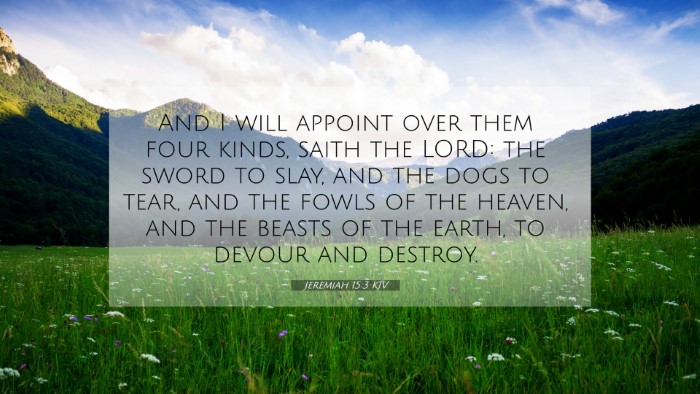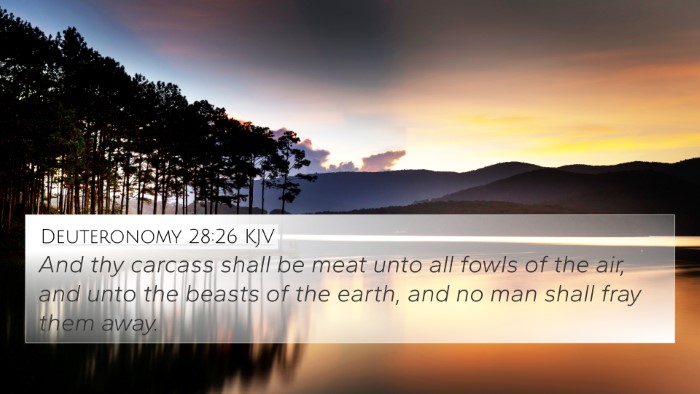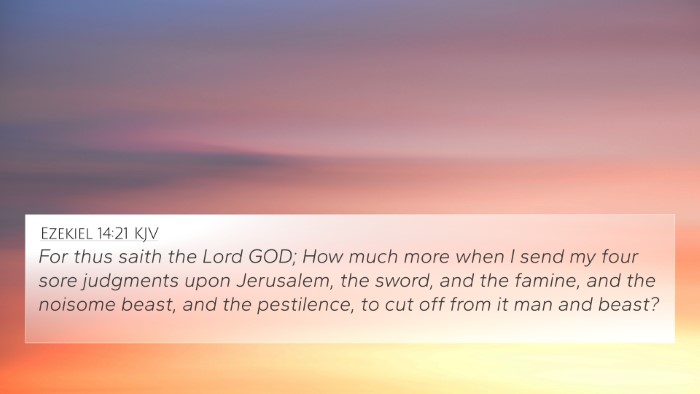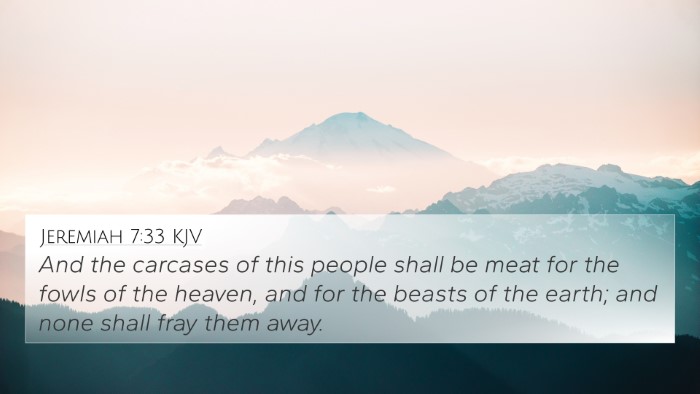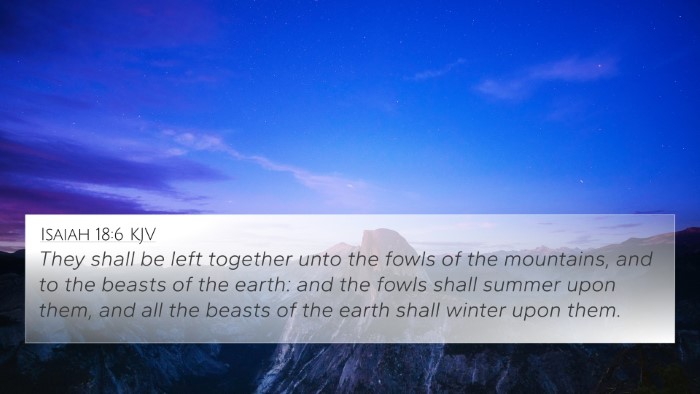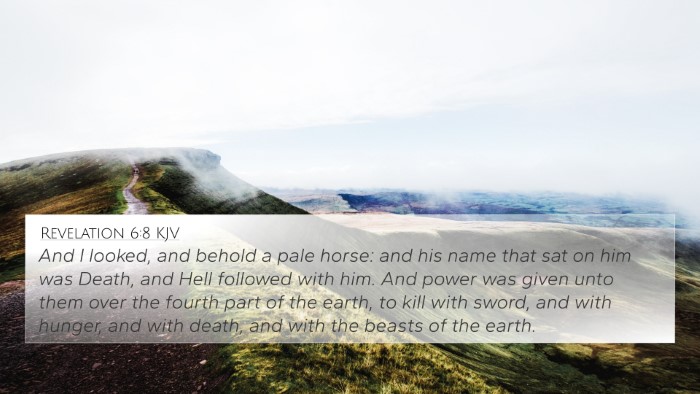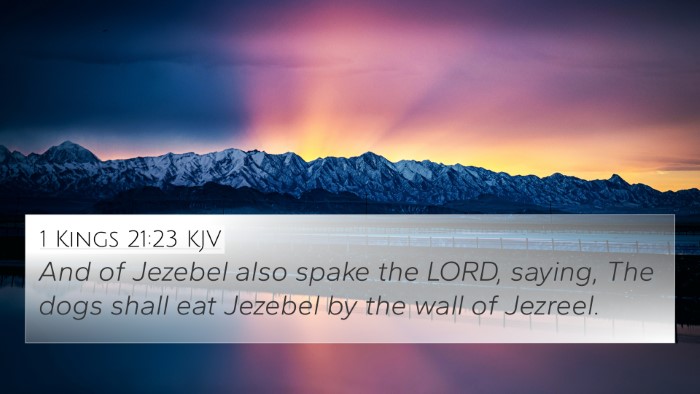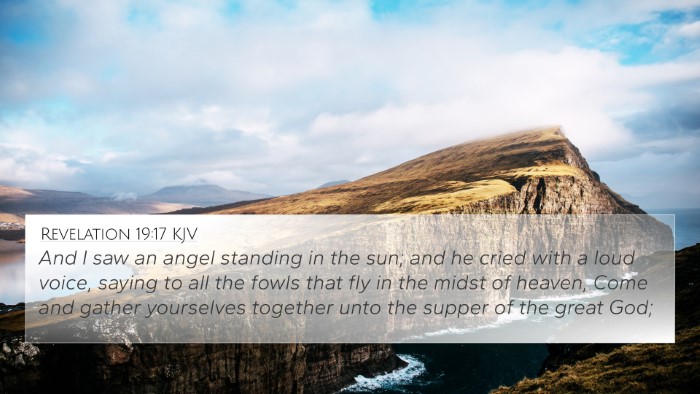Understanding Jeremiah 15:3
In Jeremiah 15:3, the Lord expresses His judgment upon the people through His prophet Jeremiah. The verse states:
"And I will appoint over them four kinds of destroyers," declares the LORD, "the sword to slay, the dogs to tear, and the birds of the sky and the beasts of the earth to devour and destroy." (Jeremiah 15:3 NASB)
Summary of Jeremiah 15:3
This verse signifies God's sovereignty in executing judgment. Described are four calamitous instruments employed by God against the unrepentant people who have turned away from Him.
Commentary Insights
When examining this text, insights from public commentaries such as those by Matthew Henry, Albert Barnes, and Adam Clarke can provide depth and context:
-
Matthew Henry's Commentary:
Henry emphasizes the divine nature of the pronouncement. He notes that God's appointing "four kinds of destroyers" conveys a serious warning. The four instruments symbolize comprehensive destruction, indicating that no part of society will escape divine judgment.
-
Albert Barnes' Notes:
Barnes highlights the symbolic representation of the 'sword,' 'dogs,' 'birds,' and 'beasts.' The 'sword' represents warfare and conflict, while 'dogs' are seen as animals of scavenging, which imply humiliation and destruction. This portrayal underscores the thoroughness of divine retribution.
-
Adam Clarke's Commentary:
Clarke points out that these actions illustrate God's power over natural elements. His commentary reveals that this metaphor serves as a reminder of God's unwavering justice even in the face of human rebellion. Clarke’s analysis connects this judgment to the experiences of evil nations in biblical history.
Thematic Connections
Jeremiah 15:3 resonates with various themes in the Bible, presenting connections that highlight God's judgement:
- Divine Judgment: The theme of divine retribution is prevalent throughout Scripture, notably in Isaiah 66:16 and Ezekiel 14:21, which echo similar sentiments about God's authority over sin.
- Warnings to Nations: The prophetic warnings found in Jeremiah parallel those in Amos 4:10. Both warn of calamity as a consequence of transgression.
- The Role of the Prophet: Jeremiah as a prophet of doom parallels other prophetic voices in Micah 3:12, illustrating the heavy burden on prophets to declare God’s judgments.
- Inescapability of God's Justice: God's justice surfaces in Romans 1:18, highlighting the inevitability of facing consequences for unrighteousness.
- Natural Disasters as Instruments of Judgment: Parallels can be drawn with Acts 12:23, where God's direct intervention leads to severe outcomes for the unrepentant.
Cross-References for Further Study
For those studying Jeremiah 15:3, here are important cross-references to explore:
- Deuteronomy 28:15-68 - The curses for disobedience.
- Jeremiah 5:6 - The inevitability of destruction through diverse means.
- Lamentations 1:7 - Reflection on the destruction of Jerusalem.
- Ezekiel 5:17 - Similar descriptions of divine judgment.
- Revelation 19:17-21 - A New Testament parallel of God’s judgment.
- Psalm 78:31 - Reference to judgment through destruction.
- 2 Kings 17:25-27 - Historical accounts of divine punishment via various means.
The Importance of Cross-Referencing
Utilizing tools for cross-referencing can deepen understanding. The following insights provide guidance on how to methodically approach this:
- Bible Concordance: A comprehensive tool for tracking themes and related verses.
- Bible Reference Resources: Systematic guides that offer cross-references.
- Cross-Referencing Bible Study Methods: Techniques that highlight thematic links across both Old and New Testaments.
Integrating Cross-References into Study
To enhance biblical understanding, consider these methods:
- How to Find Cross-References: Use concordances and thematic link studies to trace ideas through Scripture.
- Identifying Connections: Explore relationships between verses like Matthew 24:6-8 and Jeremiah 15:3 to understand prophetic patterns.
- Comparative Studies: Engage in detailed theme analysis between Gospels and prophetic literature.
Conclusion
Understanding Jeremiah 15:3 unveils the gravity of God's judgment through prophetic proclamation. Utilizing systematic cross-referencing can illuminate similar themes across Scripture, offering comprehensive insights into the nature of divine justice.

